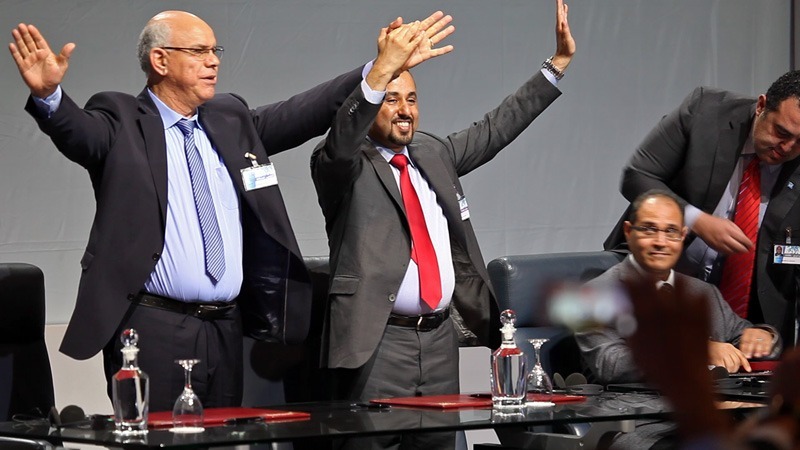By Libya Herald reporter.

Tripoli, 3 February 2016:
The General National Congress (GNC) has expelled eight of its members on the grounds that . . .[restrict]they had “unlawfully” taken part in the UN-led Libya Dialogue. Making the announcement, the GNC’s first deputy president, Awad Abdul Saddeq, said that those removed had “violated the constitutional declaration” by signing the Libyan Political Agreement (LPA) without GNC’s approval. It was signed in Skhirat in December.
He gave no names. However, GNC members report that they are second deputy president Salah Makhzoum who co-signed the LPA; Mohamed Ammari, who has suspended his membership of the Presidency Council over prime minister-designate Faiez Serraj’s meeting with Khalifa Hafter; Belgassem Gzeit, the Misrata member who leads the pro-LPA group within the GNC; Mohamed Emmazib; Ali Suwaiyeh from Janzour; Shaaban Abu-Setta (Nalut); Naima Al Hami (Zawia); and Abdullah Jawan (Zliten).
Makhzoum, Ammari, Gzeit and Emmazib were among signatories to a statement yesterday that the HoR had to stick to the LPA in its entirety and that it could not amend it.
Another report suggests that ten members were expelled.
Abdul Saddeq did not disclose how the GNC had come to its decision – when the session took place, who voted, who was summoned to it, or whether GNC president Nuri Abu Sahmain and his inner circle simply decided it.
Although the GNC takes the view that it has the right to appoint its team to the Libya Dialogue (and in September appointed Abdul Saddeq at the head of a new four-man team), membership of the Libya Dialogue is, in fact, at the invitation of the UN Special Envoy.
To expel – as opposed to suspend – members of a parliament for political action is highly unusual anywhere is the world and is usually only used in fascist or communist states. It is seen as fundamentally undemocratic.
Last month, the GNC removed another 12 members for consecutive non-attendance of its meetings. [/restrict]







